Search by alphabetical topics All ABCDEFGHIJKLMNOPQRSTUVWXYZ
-
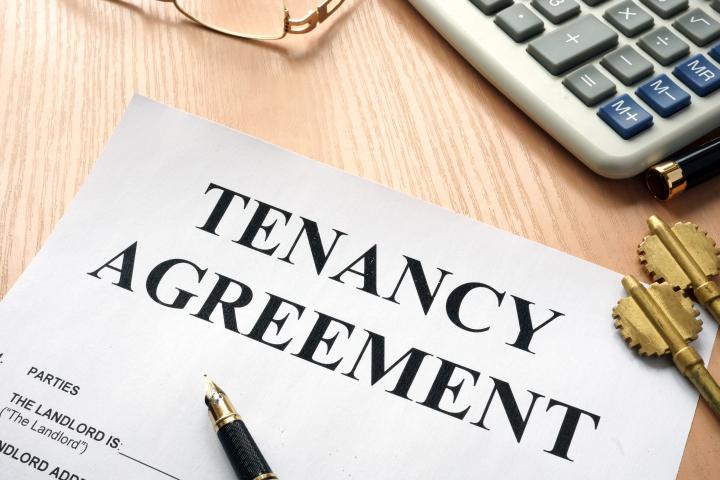 Reasonable Period of Time
Reasonable Period of TimeA reasonable period of time for a repair depends on the type or urgency of the required repair.
For example a loss of electricity/water supply or severe leak would be expected to be repaired within 24 hours. Repairs to guttering and general household leaks would be expected to be completed within 7 days. General building repairs such repairs to plasterwork or door frames would be expected to be completed within 1 month. If repairs are required to the physical building structure then time must be allowed to coordinate scaffolding etc.
-
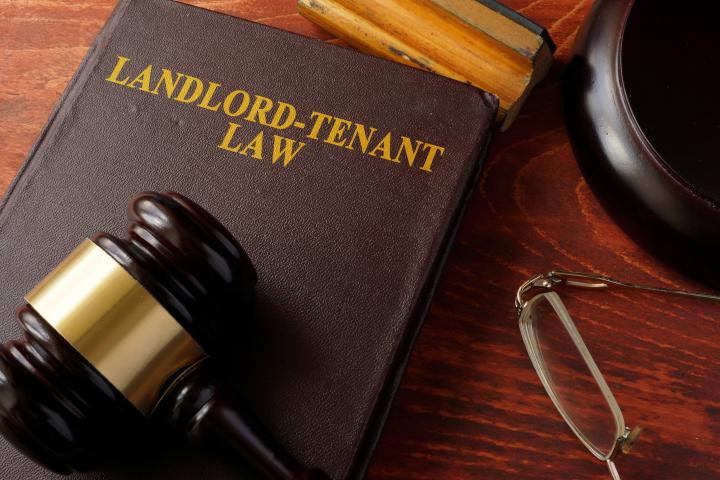 Regulation of Estate and Letting Agents
Regulation of Estate and Letting AgentsWhen approaching estate agents and/or letting agents a tenant should make sure that he/she enquires that the letting agent he/she is visiting is a member of the professional bodies that regulate estate and letting agents. Members of the organisation that regulate estate agent and letting agents must sign up to certain standards of practice and a tenant will have access to an independent complaintS procedure should things go wrong.
If the tenant has a cause to complain about an estate agent/letting agent, they should:
- Check that the estate/letting agent is a member of the scheme (listed on our Legal Advice Links) and if they are the tenant should:
- Contact the applicable scheme and follow the published complaints procedure on the schemes website.
- When viewing a property, a potential tenant should check the condition of the property to avoid problems in the future.
-
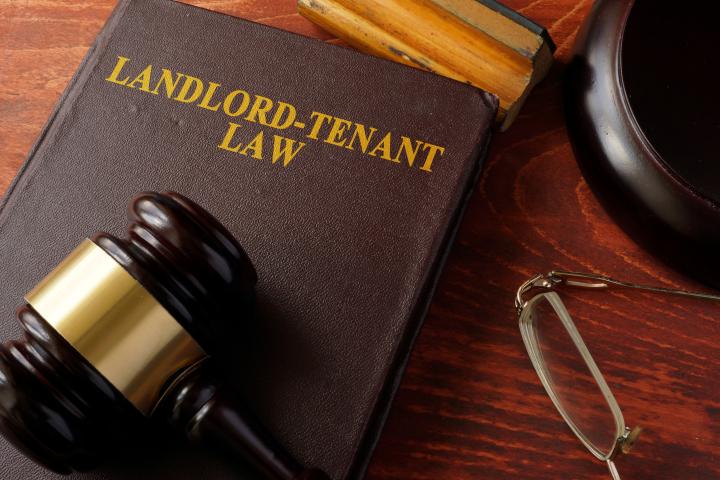 Reinstatement in the property
Reinstatement in the property- The tenant will still be able to proceed with a claim against the landlord in the County Court even if they have been reinstated in the property under the following courses of action:
Trespass to goods
- Trespass to goods relates to any interference or damage to a tenant’s belongings. If this occurs, a tenant is entitled to claim for trespass to goods against the landlord. Evidence will need to be produced such as receipts and proof of damage.
Causes of action: TORT
- If the actions of another has caused injury or loss to someone then this is a TORT and the individual who has suffered is entitled to claim to put them back to the position, they were in prior to the original action
-
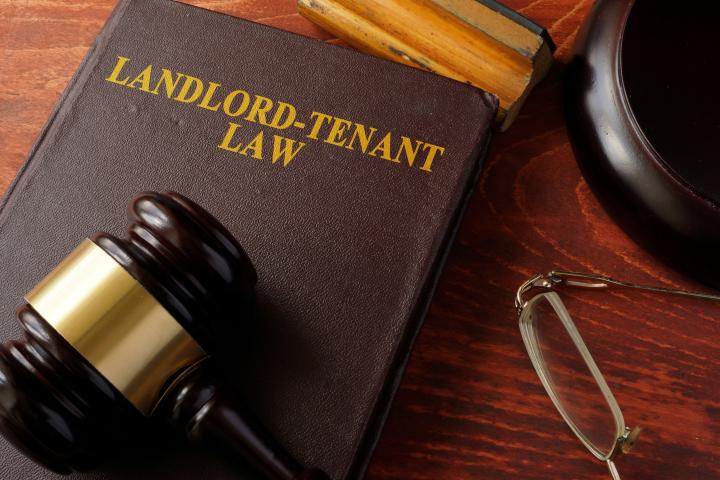 Rent Act Tenancy – Rent Act 1977
Rent Act Tenancy – Rent Act 1977- Definition – A tenancy under which a dwelling-house (which may be a house or part of a house) is let as a separate dwelling.
- The amount of rent that can be charged is regulated by linking increases to the Retail Price Index. This is known as a Fair Rent.
- Any rent increases requested by a landlord through the Rent Officer are to be registered one year and nine months after the effective date of the last registration. The new rent becomes effective after two years.
- The protected period of the tenancy does not allow any rent increases.
- A notice of increase is required to be served on the tenant if the landlord seeks to raise the rent. The notice should detail the amount and effective date of the new rent. A tenant is only liable for the increase once the notice of increase has been served. A tenant on housing benefit should take this notice to their housing benefit office.
- There are two types of tenancy: A Protected Tenancy and a Statutory Tenancy.
Protected Tenancy
- A fixed term tenancy based on a contract. The tenancy is ended with the terms of the agreement.
-
 Rent Arrears
Rent ArrearsWhat can go wrong? If your motives not to pay the rent are justifiable then you can start a procedure where you can fight and counterclaim.
Defenses
The following are the most common defenses that can be used by tenants against claims for rent arrears possession:
· If the property is suffering from some sort of disrepair, then the tenant can file a counterclaim that can be offset against the rent arrears claim.
· If the tenancy deposit scheme rules have not been complied with the tenant can file a counterclaim for the penalty to be offset against the rent arrears.
· If the rent arrears schedule does not contain a full record of payments made by the tenant for which he or she has proof of paying.
The court may adjourn proceedings to give the tenant extra time to resolve any housing benefit problems.
· If the claim for possession is following a serving of a Section 21 Notice the following defenses can be raised:
The Section 21 Notice is invalid.
The tenancy deposit has not been protected in one of the prescribed deposit schemes and/or the landlord has not provided the tenant with the relevant information in line with the tenancy deposit rules.
The tenant’s property is part of an unlicensed House of Multiple Occupation.
The Hearing
The case will be listed for a hearing if the Standard Possession Procedure has been used by the landlord.
If the landlord uses any of the mandatory grounds for possession or possession under Section 21 Housing Act 1988 the Judge will be bound to make an Outright Possession Oder if it is proved that the tenant is in breach of the mandatory grounds for possession and/or the requirements of Section 21 have been fulfilled by the landlord.
Court Orders
Outright Possession Orders
This will require the tenant to vacate the property by a specified date. A Warrant of Eviction will need to be applied for by the landlord if the tenant does not leave the property by this date.
The possession can take place forthwith after the hearing or withing 14 or 28 days. If the tenant can show that they will suffer exceptional hardship by leaving early, then the possession can be postponed by up to 42 days by the Judge.
Suspended Possession Order
This means that the tenants can remain in occupation of the property as long as they comply with the terms of the order. For example, if the possession was based on rent arrears the Court may allow a suspended sentence as long as the rent is paid in full plus an amount towards the arrears. If the terms are not met the landlord can apply to the court for eviction by bailiffs.
Adjournment
The judge can adjourn case if he/she is unable to make a decision on the case. The adjournment can be for a specified period or indefinitely.
Dismissal
The claim can be dismissed for the following reasons:
· The correct procedure for bring the case to court has not been followed by the landlord
· It has not been proved by the landlord that any grounds for possession have been breached.
Money Judgement
If the judgement for possession is on the grounds of rent arrears, then the Court will also issue a money judgement against the tenant. This requires a sum of money to be paid by the tenant to the landlord which will be the amount claimed for rent arrears plus Court costs.
Court Costs
In the event of a possession order being made the tenant may be required the pay the legal costs of the landlord commencing possession proceedings.
After the hearing
Tenant without fail will received the copy of the possessing order from the court which will set out in detail the order made by the judge during the possession hearing and explain in details what the each party responsibilities are or will be.
Challenging the possession order
In some cases, the tenants can challenge the possession order by making an application to set inside or vary the possession order. How can tenant in this untenable situation do this!
· If they do not attend the hearing due to ill health /exceptional circumstances
· The tenants were not notified of the heating date
· The tenants did not receive the court paper
· The tenants filled a late response to the claim
If the tenants have genuinely be affected by the above condition, then they can make an application to set inside or vary the possession order under Part 55.19 Civil Procedure rules
· The tenant under these circumstances will have only 14 days to make the application
· The court may decide to set aside or vary an order made under 55.17
Although the tenants have the opportunity to make applications to set inside or vary the possession order. The tenants will have to meet all condition required:
· They have shown good reason for not attending the trial
· They have acted quickly on finding out about the possessing order
· They have a reasonable prospect of wining their case at Trial
If the tenants are successful in their application, the possession order will be varied to a minor order or set inside. The tenants will be back to where they were before the start of the possessing order.
If the possession is set inside then the court will give a new date for a new hearing, where the case will be dealt with as a new case.
-
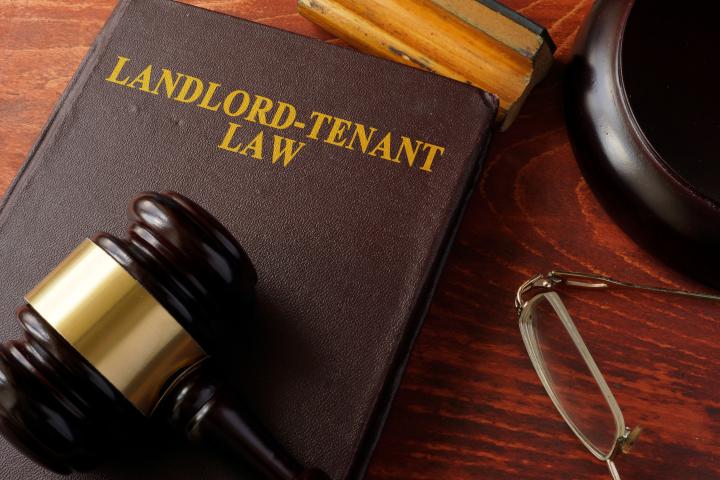 Rent Arrears Protocol
Rent Arrears Protocol- When bringing a claim for possession based on rent arrears a social landlord (this protocol does not apply to private landlords) must use the “Pre-Action Protocol for Possession Claims Based on Rent Arrears”
- This details what assistance the landlord must give the tenant prior to commencing proceedings to recover rent arrears. When deciding what order to make against the tenant the Court will take into account if the protocol has been followed.
- Any failures by the landlord to follow the guidance within the Protocol can be used by the tenant as mitigation against the landlord’s possession claim.
-
 REPAIRS
REPAIRSREPAIRING OBLIGATION (Landlord and Tenants Acts 1985)
- This is one of the mandatory obligations. Nowadays a tenant can rely on the tenancy agreement which specifies the landlord’s obligation to undertake some repairs which are mandatory. The landlord cannot avoid or ignore them.
Right to a home in repair
- The Landlord and Tenant Act 1985 provision impose the responsibility to landlords to repair or keep in repair the property they let. The tenants will have the right under the same provision to hold the landlords accountable for their responsibility under the tenancy agreement. The tenant will be able to enforce these responsibilities if they are not meet.
Meaning of repair and disrepair
- The word repair should be distinguishing in the way that the work done should be repair, renewal, maintenance, or improvement. Where necessary, it will be up to the court to decide which is which. We can speculate that repair means the restoration where renewal or replacement of less important than but related or supplementary part of the whole, while renewal is the complete reconstruction of the whole.
The Obligation
- LTA Act 1985.s11 (stands for Landlord and Tenant Act 1985.s11) which has been amended by the HA 1988 (Housing Act 1988) for tenancy starting on or after the month of January 15, 1989.
The landlord is to keep in good working order the structure of the property, which includes:
- Drains
- Gutters
- External pipes
To keep in good working order the installation of:
- The water supply
- Gas and electricity supplies.
To keep in good working order the sanitation of the building which includes:
- Basins
- Sinks
- Baths
- Any sanitary conveniences
The term keeps in repair:
- Implies that it is a continuing obligation and duty for the landlord to keep up with the above repairs, maintain and provide a good living standard of the accommodation to the tenant for the duration of the tenancy.
Keep in proper working order:
- A property can only be leased, if at the beginning of the tenancy the relevant installations are in good working order and meets the required living standard. If knowingly the landlord leases the property in disrepair or with a design fault or the installation never properly worked prior to the lease, the landlord will be in breach of the tenancy agreement.
The installations in the property:
- The landlord is obliged to keep in repair and in good working condition the following installations: the supply of water, gas, electricity, sanitation, heating, and hot water as well as gas pipes, water pipes, water tanks, electrical wiring, radiators, boilers, and other heating installations such as vents for underfloor heating. Not that they are all under the landlord’s repair obligation.
The standard for Section 11 repairs:
- The repairs in or outside of the property, (dwelling house) mentioned in the tenancy agreement by section 11s, are subject to the properties condition, its age, character, life expectancy and where it is located. Bear in mind that these qualified requirements may also require an expert to check the facts.
- A landlord has the right to undertake any repair in the manner he/she sees fit especially if the new provision may not have been expected.
- The landlord is entitled to choose the cheapest option if it is within his limit.
- If the fitting or installation which needs repairing is beyond economic repair, there is a duty from the paying party to replace “what needs to be replaced” with the nearest equivalent item. There is no obligatory requirement to upgrade, to fit the latest model or even bring the item up to the current standard unless it is required by law or in accordance with the any mandatory regulations.
- It also implies that the quality or standard of repairs is not higher for the social landlord than it is for the private landlord or the private sector.
Search by alphabetical topics
All
ABCDEFGHIJKLMNOPQRSTUVWXYZ




